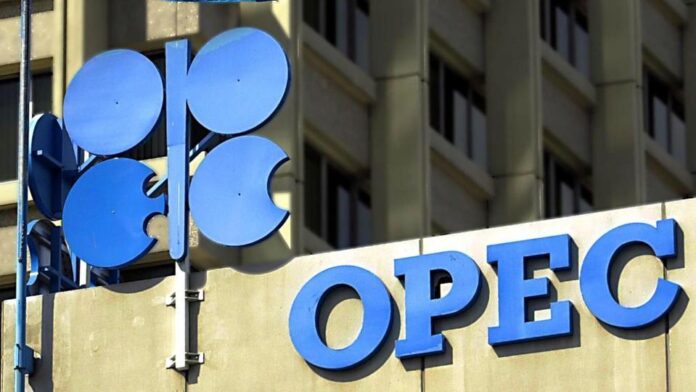THE Organisation of Petroleum Exporting Countries (OPEC) says global primary energy demand is forecast to increase by 23 per cent in the period to 2045, which necessitates utilising all forms of energy.
The OPEC said based on its World Oil Outlook (WOO) forecast, resultantly, many of its Member Countries had invested heavily in renewables, which had received a positive endorsement from the G20 developing nations.
OPEC Secretary-General Haitham Al Ghais, made this known in Abuja on Monday at the sixth edition of the Nigeria International Energy Summit (NIES 20223) with the theme: “Global Perspectives for a Sustainable Energy Future,”.
The summit, scheduled to hold from April 16 to April 20, was declared open at the Presidential Banquet Hall by President Muhammadu Buhari through the Secretary to the Government of the Federation, Mr Boss Mustapha.
Al Ghais listed the renewables as solar, nuclear, wind and waste-to-energy power, in addition to Carbon Capture Utilisation and Storage (CCUS) and hydrogen projects, as well as the Circular Carbon Economy.
“At OPEC, we recognise that the scope of the climate challenge requires comprehensive solutions. There is no panacea that can solve it alone.
“The oil and gas industry can foster its resources and expertise and help unlock our emissions-free future, through its role as a powerful innovator in developing cleaner and more efficient technological solutions.
“A diverse range of mitigation measures are necessary.
“The capacities and national circumstances of developing countries must be taken into account in all actions. We should never forget that climate change and sustainable development are two sides of the same coin,’’ he said.
He said that OPEC, as an intergovernmental organisation, composed exclusively of developing countries, seven of which are African, would want all voices included in discussions on energy transitions.
He said it had been directly involved in the evolution of the United Nations Framework Convention on Climate Change (UNFCCC), from the UN Intergovernmental Negotiating Committee in 1990, to COP27 in Sharm El-Sheikh in 2022.
“We are delighted that COP28 will be hosted by our Member Country, the United Arab Emirates.
“In addition to being involved in climate negotiations, OPEC and its Member Countries are proactive in looking for a diverse range of energy sources to meet the needs of the future,’’ he said.
The Secretary-General further said that the global oil sector alone would need cumulative investment of 12.1 trillion dollars through to 2045.
However, he said in recent years, it had heard calls from some to limit or stop funding for new oil and gas projects which was disheartening, and particularly impactful on developing countries with oil and gas resources.
“This great continent, Africa, has 120 billion barrels of proven oil reserves and 18 trillion standard cubic metres of natural gas.
“For countries to properly utilise these resources for the benefit of their people, investment levels must be adequate, whilst taking actions to reduce the carbon footprint of the oil industry.
“However, movements by financial institutions to limit and stringently control how money is invested into fossil fuels under environmental, social and governance (ESG) constraints impedes the realisation of this potential.
Al Ghais, while commending President Muhammadu Buhari for being a strong supporter of OPEC, also looked forward to a continued cooperation with the incoming administration led by President Elect, Sen. Bola Tinubu.

























